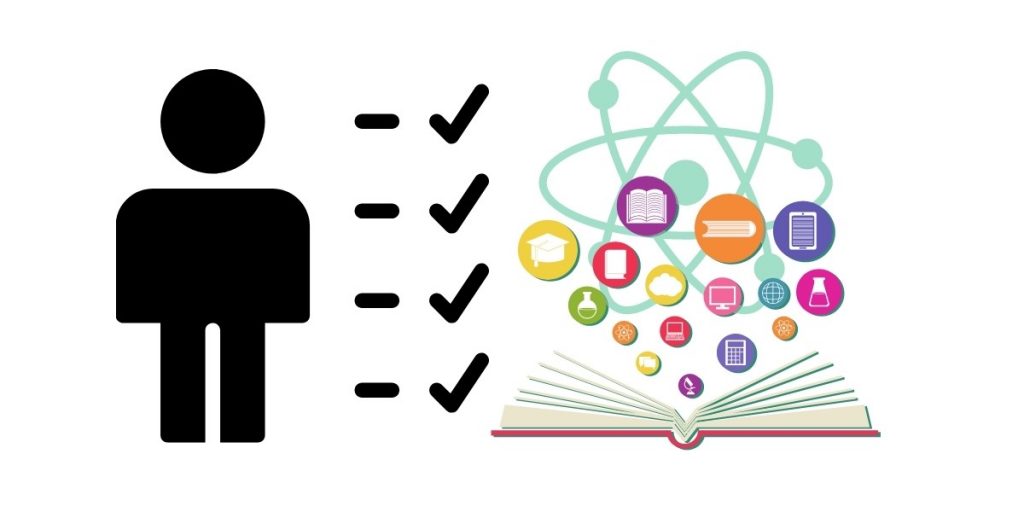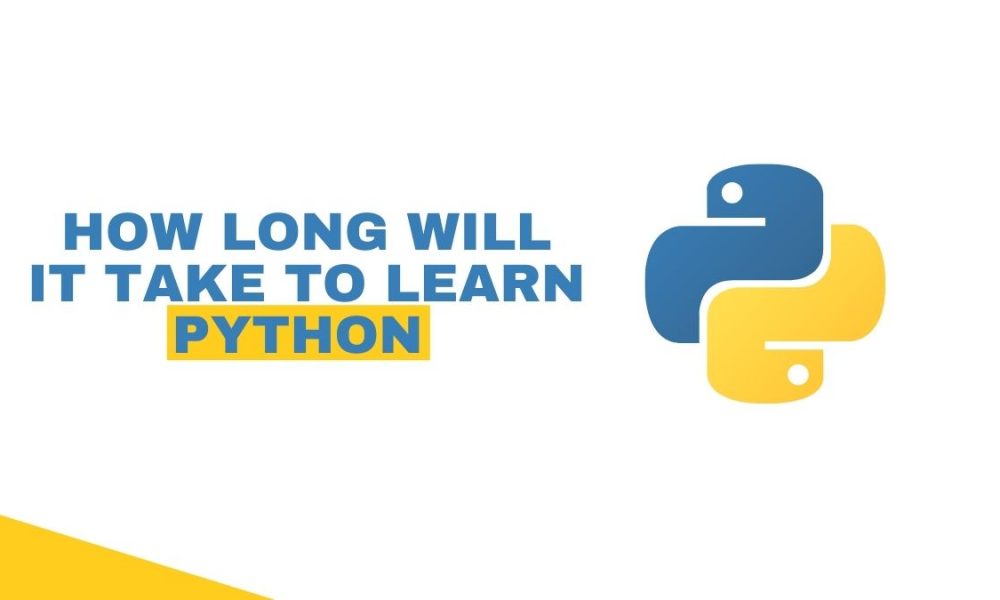Python has truly emerged as a clear winner in contemporary software development, data analysis, and infrastructure management. Gone are the days when It used to be a back-room utility language, but instead a driving force in web application creation and systems management. In addition, the language is also a key driver of the revolution in big data analytics and AI. Truth be told, futuristic programming is incomplete without python programming, and that is why its significance cannot be denied at any cost.
Let’s know about this revolutionary language in more details. and most importantly to find out about how long it will take to learn Python Programming.
Definition
An interpreted, high-level and general-purpose programming language having a design philosophy emphasis on code readability with mostly usage of significant whitespace. The language used for python constructs and object-oriented approach to help programmers write clear-cut, logical code for small as well as large-scale projects.
Where Can You Use Python?
1. Data Science
It goes without saying that Python is the new word on the street for being the most-used programming language. Moreover, Python’s time-saving libraries and its mind-blowing capability to assess large data sets very rapidly is the reason why this language enjoys such a huge repute. Python’s key capability is its performance in terms of repetitive tasks that can make its astonishing fame even more justified.
2. Web Development
Python is without any doubt a flexible programming language as it can truly make it far more convenient to establish complex web utilities. Python’s diverse web frameworks are especially useful like the renowned Django, which can make creating both backend and client-side functionality convenient and quicker. It is also necessary to know that even large organizations use Python for web development. What else is left for a programming language if both Google and YouTube have used it broadly for several of their digital infrastructures?
3. App Development
It is also important to know as to why Python is an outstanding choice for someone looking to get into app development. The clear reason is the fact that it is an ideal language for prototyping owing to its lower development time and energy involved. In the case of web development, app development is made pretty convenient by Python’s cross-platform capabilities. Python has also become really popular in the rapidly-growing sectors of blockchain app development as well as gaming app development all because of its vigorous frameworks and instantaneous testing.
Is it easy to learn and use Python?

- Owing to the fact that the number of features in the language itself is modest, it requires a relatively little investment of time or effort on your behalf to produce your initial programs.
- The best thing about the language is that the Python syntax is specifically designed to be more readable and straightforward. That is why, this simplicity ideally makes Python a teaching language.
- If you are a newbie, you don’t have to worry as this language is easy to understand, and it allows you to pick up its technically rather quickly.
- Due to the nature of the language, developers opt to spend more time pondering over the problem as they try to solve it and comparatively less time when they think about language complexities or deciphering code being left by others.
Which basic skills are needed to learn Python?

- A misconception is that you need to be good at math in order to learn Python. The conventional wisdom has for longer time been that having a natural talent for math would make it easy for you to learn programming easier.
- A recent study revealed that if you’ve mastered a foreign language, it is more likely that you might actually find it rather convenient to learn Python than someone who is good at maths.
- Although, anyone can easily learn Python. A common observation has been that learners having a wide variety of backgrounds succeed more in comparison to others.
Which Python version is the best for learning?
- The adoption of the Python 3 version was slowed for a long time owing to the lack of third-party library support as many of them supported only Python 2 and thus making it rather difficult to switch.
- The last couple of years has seen an immense increase in the number of libraries that supports Python 2 as well. Most of the popular libraries are now compatible with Python 2 as well as Python 3. Nowadays, Python 3 has been the foremost choice for most the new projects.
- The latest version i.e. 3.4 will have you covered as it has all the newer features and certain bug fixes, but the older versions mostly have extensive libraries.
- It is also worth mentioning the version you opt for also depends upon the platform that you are using such as, Mac, or Linux. However, the best practice would be to get Python from the source itself.
How long does it take to learn python?

- The answer to this simple question is that it mainly depends on what your aims are. There are very few people who master everything about Python. Truth be told, Python is a tool, and you should learn how to use this language in the context of the problems that you are opting to solve.
- Let’s take the example of a marketer who would like to analyze Google Analytics data with more passion. In that case, he can easily learn the basic syntax of Python and the pandas techniques and which can be done in a matter of weeks. By doing so, you won’t be able to be a job-qualified Python developer or, rather a data analyst. Instead, it would be enough to address your problem.
- In case if you are learning from scratch and opting for full-time work using Python, a sincere advice would be to spend at least a few months in order to study part-time. The question arises as to how many months will it take. A simple answer would be that it depends on the nature of the job you are looking for.
- Working through our Data Analyst in Python course path, for example, would get you ready to apply for jobs as a Data Analyst. Most learners take at least three months to complete this path.
- It will take you around 8 weeks in order to learn Python basics and which includes learning basic syntax, links if statements, loops, variables, functions, and data types to name a few.
- Like other programming languages, learning python also depends mainly on how much time do you spend in order to learn the language. The learning duration has a clear connection with your schedule and what type you want, and how much you want to learn.
- As far as the basic python is concerned, it will take almost 6-8 weeks for learning. This will give you enough time to grasp most lines of code in Python.
- If you opt to become an expert in Python and its field and gearing up to get into data science, you definitely need months and years of learning.
- As far as the online courses are concerned, their main aim is to make sure that you can learn basic Python in one or two months. However, it is also worth mentioning that it is rather difficult and a striking feat to learn it completely and that is why, must not to be taken lightly.
- In addition, if you are a working professional, it can take even more time to learn basic Python in comparison to the time needed when you are a student.
- If you plan on spending 2-3 hours a day on the computer, you can easily learn, practice the same thing the very next another day. All of this needs to be done on a daily basis, and it will make sure that you can learn consistently and efficiently.
- It is also worth mentioning here that learning Python needs some dedication on your behalf. Truth be told, the learning process requires spending time as it enhances your job prospects to a huge extent.
Various Learning Levels of the Python Language
There are various levels of learning Python language, i.e. Elementary Python, Advanced Python and Professional Python.

Elementary Python
As far as learning elementary Python is concerned, it enables you to learn the elementary programming tools such as syntax, keywords, functions, data types, classes, and so forth. As far as this level is concerned, it can take around 8 weeks for an intermediate programmer in order to master it.
Advanced Python
When it comes to learning advanced Python, you need to know that it involves multi-threading, data synchronization methods, socket programming, socket programming, and database programming, to name a few.
Moreover, it also depends on the nature of the work and how much time you need in order to learn these techniques strictly as it depends mostly on the skill level of the learner.
Professional Python
As far as learning professional Python is concerned, it is important to keep in mind that it is all about using certain concepts such as Data Analytics, executing libraries/packages, and image processing, to name a few. Truth be told, these are rather complicated technologies.
As far as courses are concerned, there are both online and offline courses to learn these techniques. Moreover, the time to learn these complicated techniques depends as it can take from 2 weeks to one month and vary according to the depth of the content.
Can You Teach Yourself Python?
l As a matter of fact, it is comparatively a better option to learn Python on your own. There are a wide range of learning resources that you can easily find on the web, which can easily help you learn Python for everything ranging from game development to robotics.
l There are various online platforms that can help innumerable students learn Python and easily adjust themselves in data science, all on their own schedule and that also from the comfort of their own homes.
l It is also worth mentioning here that teaching yourself Python will need some dedication and time. You need to keep in mind that when you are writing code and applying, you should be aware of the real-world scenarios instead of just watching lecture videos and attempting multiple-choice questions.
Bottom Line
You can easily learn the basics of python language in a week or two. However, a better grip of the basics (variables, functions, for loops, if-else statements, etc.) would be sufficient for you to solve problems quite easily. In addition, if you want to work with Python full-time, it is essential that you need to study for at least a few months.

Leave a Reply